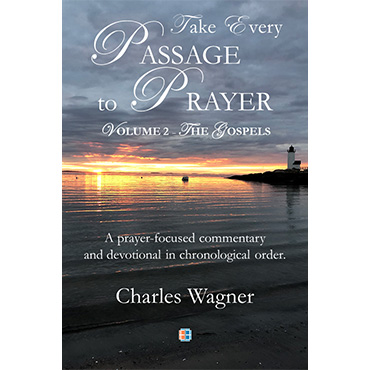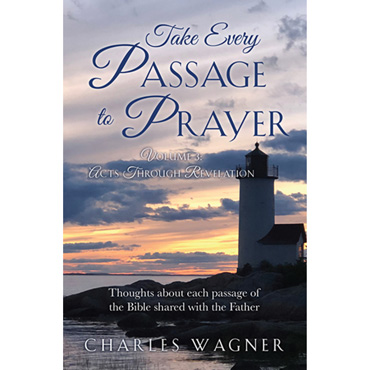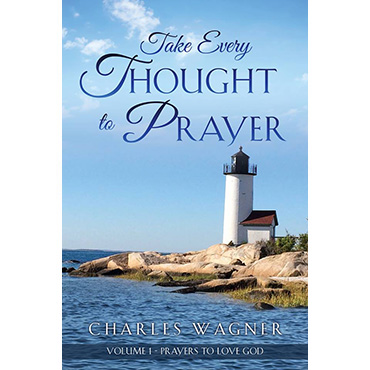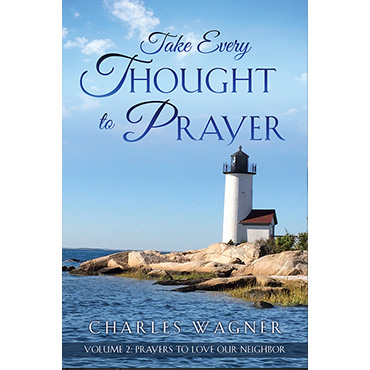The Gramazin Blog
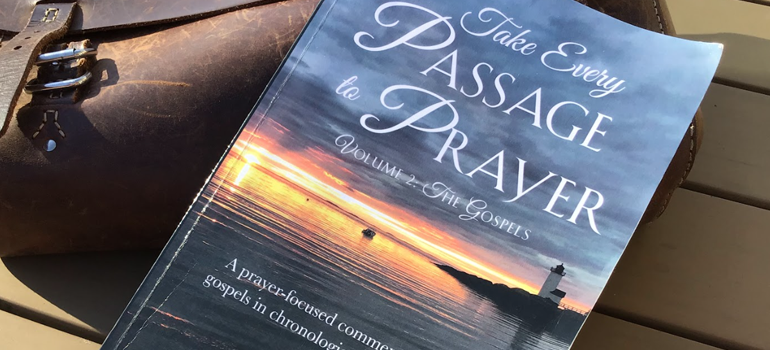
John the Baptist is Having Doubts
Take Every Passage to Prayer - Volume 2, The Gospels
Thursday July 04, 2024
Matthew 11:2-19, Luke 7:18-35
Father, it is with sorrow that I must confess that I am going to have moments of doubt, just like John the Baptist did. I am human. I am not completely sanctified. My sinful nature will remain, though hopefully less and less influential, until my last breath. Father, please help me to avoid these times of doubt but when I have them, please gently restore and renew my faith. May my moment of doubt become a testimony of Your grace. Father, at the center of all ministries is the gospel of Jesus Christ. Help me not to feed the poor or to visit the sick and elderly without sharing the gospel of Jesus Christ. Father, open my eyes that I might see the truth of Your Word. Open my ears that I might hear the truth of Your Word. Amen.
Father, it sounds like John the Baptist was experiencing duress in prison. Perhaps he was deprived of the basic necessities of life by a still angry Herod Antipas and his wife Herodias. Perhaps he was persecuted by his jailers. Perhaps John the Baptist had thought that Jesus should have liberated him by now. Was John experiencing, in some small way, what Jesus would experience on the cross:
“Father, why have you forsaken me? (NIV, Matthew 27:45, Mark 15:33).”
Did John the Baptist feel forsaken by Jesus? Had John been visited by the same Satan who had tormented Jesus in the wilderness?
“Hey, John. Jesus has forgotten you. He’s ungrateful for all you did for Him. You’ve received all of these reports of His enormous fame. He’s too busy soaking in the praise and glory to care or even think about you. Jesus is not the friend you thought He was.”
As a result, John’s faith in Jesus was wavering. He wanted to still believe Jesus was who he had thought Him to be, but John now had doubts. Therefore, he needed to get to the bottom of this. After communicating his doubt to his disciples , he sent two of them to ask Jesus to clarify who He was.
John’s disciples approached Jesus, identified who they were, and asked Him if He was the Messiah or if someone yet to come will be. Jesus replied with a list of criterion that give evidence that He is the Messiah:
- The blind receive sight. Jesus not only gives site to the blind, He also gives light to those in spiritual darkness.
- The lame walk. Jesus not only enables the lame to walk, He also gives people work to do to build the Kingdom of God.
- Those with leprosy are cleansed. Jesus not only cleanses the leper, He also cleanses people of their sin.
- The deaf hear. Jesus not only restores the hearing of the deaf, He also gives understanding to those who couldn’t hear spiritual truth before.
- The dead are raised. Jesus not only raises the dead, He also gives new life to the spiritually dead.
- The good news is proclaimed to the poor. Jesus’ work back in the day, and in the 21st century, is to proclaim the good news to those who are poor in spirit, those who mourn the state of their sin.
Jesus’s response to John is twofold:
- I minister to the material needs of people in this life.
- I minister to the eternal spiritual needs of these same people.
Jesus never heals, restores, renews, refreshes, protects, provides for, rescues, or delivers someone in this world without also working to complete the miracle by bringing about the person’s salvation. Any perception that Jesus exclusively ministers to a person solely for the sake of their comfort in this life is false. When a person is cured of a disease, we can be certain that the healing was intended to draw them into saving faith in Jesus Christ or into service for the Kingdom of God.
The text tells us that Jesus replied:
“Blessed is anyone who does not stumble on account of me (NIV).”
In other words, blessed is the person who chooses to believe that Jesus is the promised Messiah. Jesus is saying to John, through his disciples, that John had a choice to make. It was not Jesus’ responsibility to convince John that Jesus is the Messiah. It was John’s responsibility to believe the evidence He had already received. If John chose to doubt that Jesus was the Messiah, he had stumbled in his faith because of his choice to disbelieve.
As John’s disciples were departing with what could be considered a spiritual rebuke for him, Jesus made sure they also could give John a word of comfort. John’s disciples were able to report to him that Jesus said the following about him for the crowds to hear:
- John the Baptist is stable and strong. He is not a reed swaying in the wind.
- John the Baptist has the right values. He did not wear fine clothes, which would have indicated a heart for materialism. Instead, he is spiritually minded.
- John the Baptist is a prophet, the one spoken of in Malachi 3:1.
- There is no one greater than John the Baptist, though anyone who comes to faith after Jesus’ death and resurrection will be more spiritually blessed than those, like John, who lived and died before calvary.
- World history pivots upon the life of John the Baptist. Before John, the prophets prophesied about the coming of Jesus Christ and his role, as Elijah, to pave the way for the Messiah. John introduced to the world the long-promised Messiah who now changes everything. The evidence that this is the crucial moment in world history is the spiritual warfare (“the violence”) that has intensified since John the Baptist began to preach repentance and forgiveness of sins through the Messiah.
Luke 7:29 tells us that Jesus was speaking to an audience that had been baptized by John the Baptist. The text informs us that those who were listening to Jesus, even the loathed tax collectors, loved God’s ways because of John’s preaching.
Jesus throws out a challenge to this crowd:
“Whoever has ears, let them hear (NIV).”
In other words, whomever chose to listen to what John the Baptist had preached and had come to repentance. They were to meditate on what Jesus had said: John the Baptist was the evidence that Jesus was the Messiah.
Jesus used the metaphor of the immaturity of children to describe those who are critics of the ministry of John the Baptist.
- They accused John of having a demon when he merely abstained from the pleasures of life.
- They accused Jesus of being a glutton and a drunkard because He had befriended tax collectors and sinners.
Their judgements are foolish and immature. Jesus tells us that wisdom is always proven right by those who live wisely. Wise men and women don’t criticize John the Baptist and Jesus like the childish Pharisees and teachers of the law do.
Father, while Your Word doesn’t tell us how John responded to the report from his disciples, I believe Jesus’ words to John’s disciples were perfectly designed to address John’s doubt. John’s faith in Jesus was restored and refreshed. Amen.
Note that John the Baptist questioned Jesus’ ministry, but Jesus responded by affirming John the Baptist’s ministry. The doubt of man tears down, but Jesus builds up and renews.
Before the cross of calvary, a man was forgiven incompletely of their sin by continuous animal sacrifice. After the cross of calvary, a man was forgiven in totality of their sin by the single one-time sacrifice of the Son of God.
However, the Pharisees and experts in the law still didn’t get it – they were still blind and deaf to spiritual truths.
This phrase occurs 14 times in the New Testament: three times in the book of Matthew, once in Mark, twice in Luke, and eight times in the book of Revelation. It is obvious that this phrase was something Jesus had said repeatedly in His ministry and had great significance to the eternal destiny of each soul. Who is listening to find salvation from their sin? Let them listen to the gospel of Jesus Christ.


